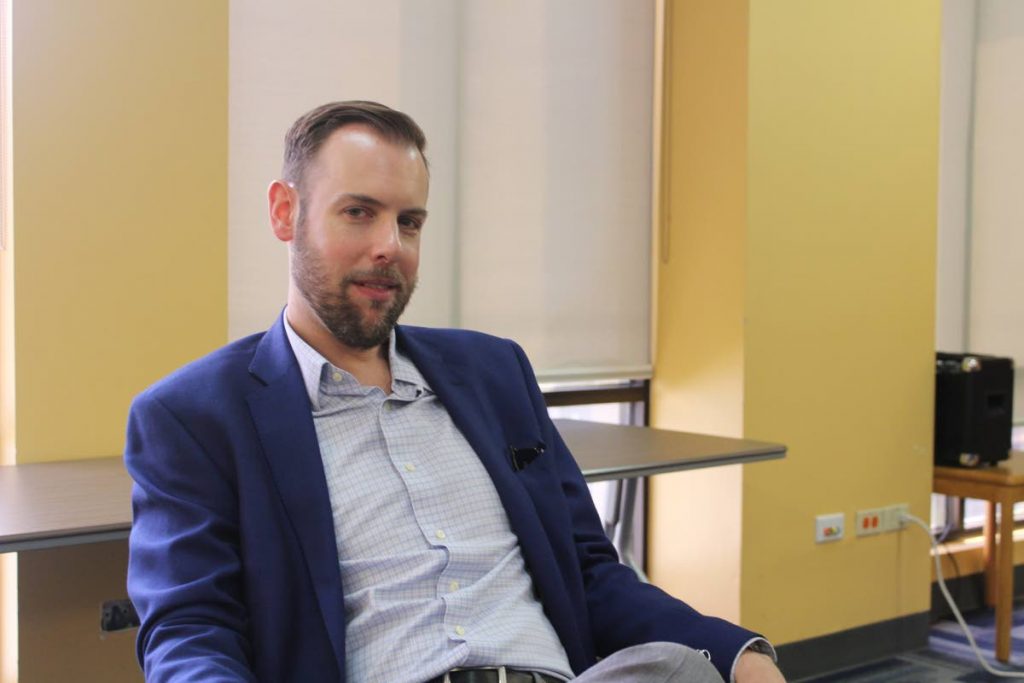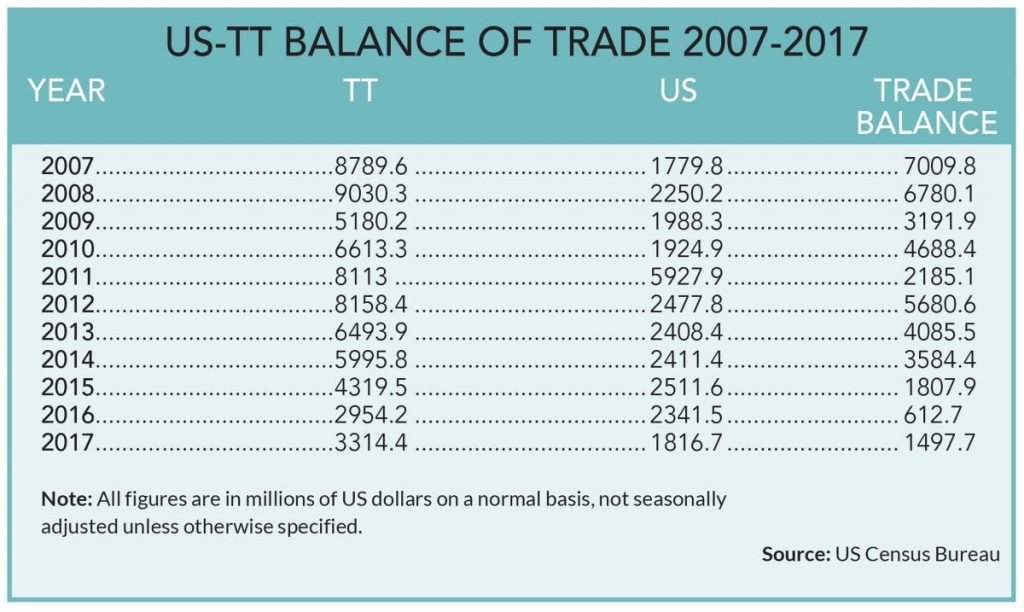The American factor

There are many good reasons why American companies want to do business in Trinidad and Tobago, and not just because of the weather and liming.
“US companies see TT as positive because you have a stable democracy, you have rule of law, the same language, we have a roughly shared culture and time zone. All these things are good things so that’s why business operations and services are something that may take off in the near term,” says new economic and commercial officer at the US Embassy Matthew Ciesielski.
Business Day spoke with Ciesielski, who’s only been in the country for a few months, at the US Embassy’s Sweet Briar Road location.
One of Ciesielski’s roles is the primary liaison for US businesses that want to operate in TT. Recently, he spearheaded a trade mission from the US for eight companies looking for partnerships in TT. And that was just a fraction of the dozens of interested parties he said he’s heard from, interested in opportunities here.
The embassy’s role isn’t determining who comes here, but to facilitate and promote US business, which it believes, can also aid in economic growth and diversification for TT and even institutional strengthening. “We don’t really take the approach of picking and choosing which companies come here. It’s not something that tends to work very well. We take everyone. We promote US business because we see it as a quality product,” he said.
The institutional framework and checks and balances of the US legal system, which prevents and allows for recourse from bad behaviour makes US businesses good partners. There’s also the sharing of knowledge and technical expertise, including training for local staff and encouragement of local content, that can benefit both the US and TT, Ciesielski said.

On the flipside, Ciesielski is also privy to the litany of complaints that people doing business in TT have to endure, among them foreign exchange, lack of open, transparent business opportunities because of the perceived opacity of the government tendering process, security and crime, productivity and bureaucracy.
“We’ve heard concerns and it’s not a new thing,” Ciesielski says. “We certainly want US businesses to do well but it’s not that we’re here to look out for their ‘best interest.’ What we’re here to do is look out and advocate for a level playing field that is transparent. For everyone. It is the opinion of the US government and the US embassy that if we were to get a level playing field then US companies would do very well. What are challenges to a level playing field? Corruption, crime and the lack of transparency so the goal is to promote things that will improve the environment which is already pretty good.”
To that end, the US Embassy recently helped procure four scanners for the ports of Point Lisas and Port of Spain. The scanners will cut down on the length of time it takes to examine containers for import and export, and are already up and running at Point Lisas; Port of Spain still needs to sort out some administrative issues.
And while the impact of foreign exchange constraints on local business have been widely reported, Ciesielski points out that US companies operating here also have similar problems. “There are big companies who can weather the storm and carry balance sheets out a bit, but most can’t. They need to get paid and I’ve heard a lot of concerns. It’s definitely seizing the market up a bit,” he said.
Ciesielski tells businesses there’s not much the embassy can do — it’s really a TT issue to solve.
“As it stands right now the exchange rate is effectively subsidising foreign products. That’s great of you can get paid but it makes it difficult for local manufacturers and businesses to compete. That might be problematic for diversification because it’s difficult to encourage US businesses to invest when they are already confronted with other problems, and then whatever they make gets tied up for at least six months. That’s a difficult proposition. Sure they can carry out a stack of TT dollars but they are going to have an awfully hard time spending it in the US so they need to find a way to convert here and transfer. It’s just difficult to find dollars here,” he said.
Trade between the two countries is, however, roughly balanced, with TT’s energy exports giving it a slight edge (see table). “If you take out energy, it’s roughly even,” Ciesielski said.
TT was once the biggest exporter of liquefied natural gas to the US. With the rise of shale gas, however, the US has become a net exporter of natural gas.
“In the last five years or so things have tilted but that’s not to say they’re going negatively against Trinidad and in favour of the US, in isolation. Obviously, Trinidad needs to find other markets. There are other markets— the world is only becoming more and more hungry for energy but quite frankly what Trinidad needs to do— the big question— is the one that’s been on the table for 20 years: economic diversification. The energy sector is going to be big in the near term and the medium term, but the long term, that’s the question,” he said.


Comments
"The American factor"